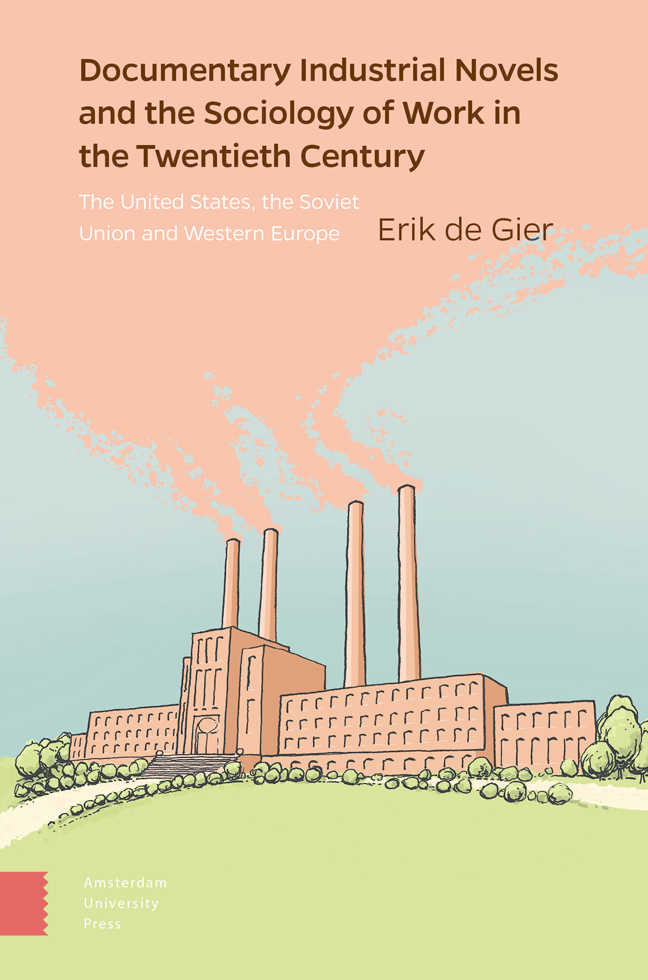 Documentary Industrial Novels and the Sociology of Work in the Twentieth Century
Documentary Industrial Novels and the Sociology of Work in the Twentieth Century Published online by Cambridge University Press: 20 February 2024
Abstract
In this chapter the balance of this study of Modernist industrial novels and the sociology of work is drawn by making a transnational comparison of the five countries under regard in the American Century: the United States, the Soviet Union, Weimar Germany, post-war Italy, and France. A common thread in the cross-comparison is the introduction of modern American production techniques (Taylorism and Fordism) and their consequences for workers, first in the United States and then subsequently in somewhat adapted ways in the other four countries. The chapter ends with a reflective conclusion with respect to the application or use of Modernist industrial novels as a research source in the context of the sociology of work.
Keywords: Transnational comparison, American Century, Taylorism, Fordism, modernist industrial novels, industrial sociology
Introduction
In this chapter I will compare the five country cases described in this book. The main question is, can or do Modernist industrial novels written in different countries in various time periods (mostly between 1900 and the 1980s) spanning the so-called ‘American Century’, offer new or additional insights to academic industrial sociology? In other words, does it make sense to bring together the fields of literature and (industrial) sociology? When taking the dual transnational and longitudinal perspective, one development stands out that influenced both industrial sociology and Modernist industrial novels more or less equally. That is the Americanization of production processes by introducing scientific management and Fordist work methods, first in the United States and then in more or less adapted forms in the other countries. This implied a focus on the content of the modernist industrial novels dealt with, set in diverse national and time-specific contexts. Apart from that, the ways the underlying empirical research for the novels was carried out by its authors are also relevant, as too are the various ways the results are processed in these novels (See Table 1, Chapter 1).
Cross-country comparison
The flowering of the Modernist industrial novel covers more or less a century between 1900 and the 1980s. In the background of this long period there existed a successive tension in these novels between utopian and dystopian elements. In the first decades of the century utopian view prevailed, perhaps most importantly the shared belief – among entrepreneurs, managers, and workers – in the benefits of efficiency or the Americanization of production processes.
To save this book to your Kindle, first ensure [email protected] is added to your Approved Personal Document E-mail List under your Personal Document Settings on the Manage Your Content and Devices page of your Amazon account. Then enter the ‘name’ part of your Kindle email address below. Find out more about saving to your Kindle.
Note you can select to save to either the @free.kindle.com or @kindle.com variations. ‘@free.kindle.com’ emails are free but can only be saved to your device when it is connected to wi-fi. ‘@kindle.com’ emails can be delivered even when you are not connected to wi-fi, but note that service fees apply.
Find out more about the Kindle Personal Document Service.
To save content items to your account, please confirm that you agree to abide by our usage policies. If this is the first time you use this feature, you will be asked to authorise Cambridge Core to connect with your account. Find out more about saving content to Dropbox.
To save content items to your account, please confirm that you agree to abide by our usage policies. If this is the first time you use this feature, you will be asked to authorise Cambridge Core to connect with your account. Find out more about saving content to Google Drive.